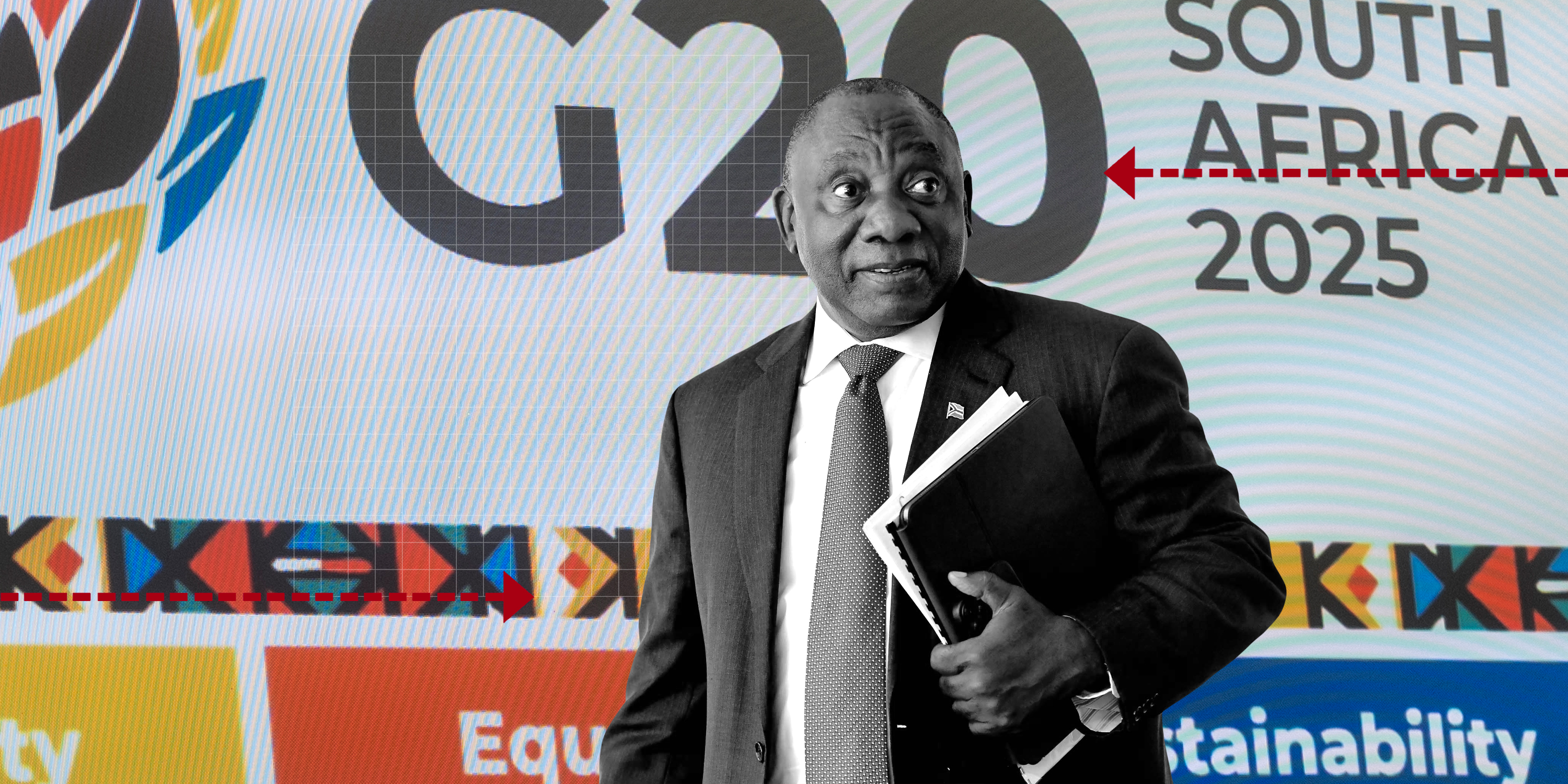The year 2024 has been another turning point in the relationship between the government and the private sector.
Realising that it lacks the capacity and money to run the economy and country-benefiting initiatives, the government has been asking for help from the private sector. In recent weeks, the government approached the private sector with a begging bowl (again) and asked for other forms of support.
It asked the private sector for help with hosting events around South Africa’s Group of 20 (G20) presidency — events that are set to cost as much as R1-billion. The government cannot afford this cost.
The G20 presidency over the coming year will see South Africa host heads of state across the country, which will be a logistical nightmare. The government must secure private venues to host G20 summits and engagement forums. It has already asked private sector companies, including all the big banks and hotel groups, to use their conferencing venues for free.
In other areas, the government is leveraging the skills of private sector players.
A few days ago, the Department of Transport asked aviation experts to help investigate the causes of flight delays and cancellations at the country’s major airports — a problem that worsened in 2024.
Loss of skills
Transport Minister Barbara Creecy has appointed a panel of experts from the private sector to probe the affairs of the Air Traffic & Navigation Services, a state-owned enterprise (SOE) responsible for directing air traffic over South Africa’s skies. Air Traffic & Navigation Services has suffered a loss of skills, mainly qualified air-traffic controllers, radar controllers and instrument flight procedure designers, which aviation experts believe is the main cause of flight delays and cancellations. Daily Maverick’s investigation on the matter can be read here.
Also a few days ago, state-owned transport group Transnet announced FFS Tank Terminals (linked to a private sector company) as the preferred bidder to help run a terminal at the Port of Cape Town over 25 years.
Transnet will essentially hand over the keys to FFS Tank Terminals to operate a liquid bulk terminal at the Port of Cape Town, and will also pour money into upgrading the terminal over the next 25 years to improve its efficiency and competitiveness. A similar arrangement with a private sector player has happened at the Port of Durban.
Embracing the private sector as a partner for delivery is a tacit admission by Transnet and the government that they need help running the country’s ports, which have become the world’s worst in terms of efficiency and competitiveness after many years of neglect by the SOE.
There have been more examples of the private sector bailing out the government over the past two years. About 150 CEOs have pledged their support to the government, offering expertise and mobilising R180-million to fix the country’s problems in three key areas: electricity, transport and logistics, and crime and corruption.
Embarrassing
For the ANC, part of the new Government of National Unity (GNU), approaching the private sector with a begging bowl must be embarrassing. This is because for many years, especially under the Jacob Zuma presidency, the ANC has envisaged the state playing a big role in the economy, something that was even baked into its policies. In its interventionist approach, the ANC even iced out the private sector.
Zuma’s nine-year-long presidency was often hostile towards business. There were deep divisions and a large trust deficit between the government and business.
Remember how calls for “radical economic transformation” grew louder during the Zuma years? Remember how some players in the private sector were labelled as “white monopoly capital” and blamed for the majority of black South Africans remaining marginalised from the mainstream economy after apartheid ended? And remember how the private sector was also blamed for not investing enough money in the economy or creating jobs?
As these accusations were being hurled by government officials, the state’s capacity was fast diminishing. Eskom’s perennial blackouts and failures by other SOEs (especially Transnet) meant that South Africa’s economy remained flatfooted, failing to grow beyond 2% for many years.
“Junk” downgrades by credit rating agencies meant South Africa became uninvestable because global investors found other emerging markets to deploy their capital. South Africa’s tax base and collection shrunk, diminishing the government’s ability to fund life-enhancing service delivery programmes. State Capture corruption festered. Capable and skilled people were hounded out of key state organs, and replaced with pliable individuals. Trust and goodwill towards South Africa eroded.
Over the past five years, President Cyril Ramaphosa has been trying to rebuild state capacity, which has been difficult. So, in the interim, Ramaphosa has brought business and some of his private sector pals closer to government functions to fix the country’s problems. This is set to continue in the next five years under the GNU, which Ramaphosa leads. DM





